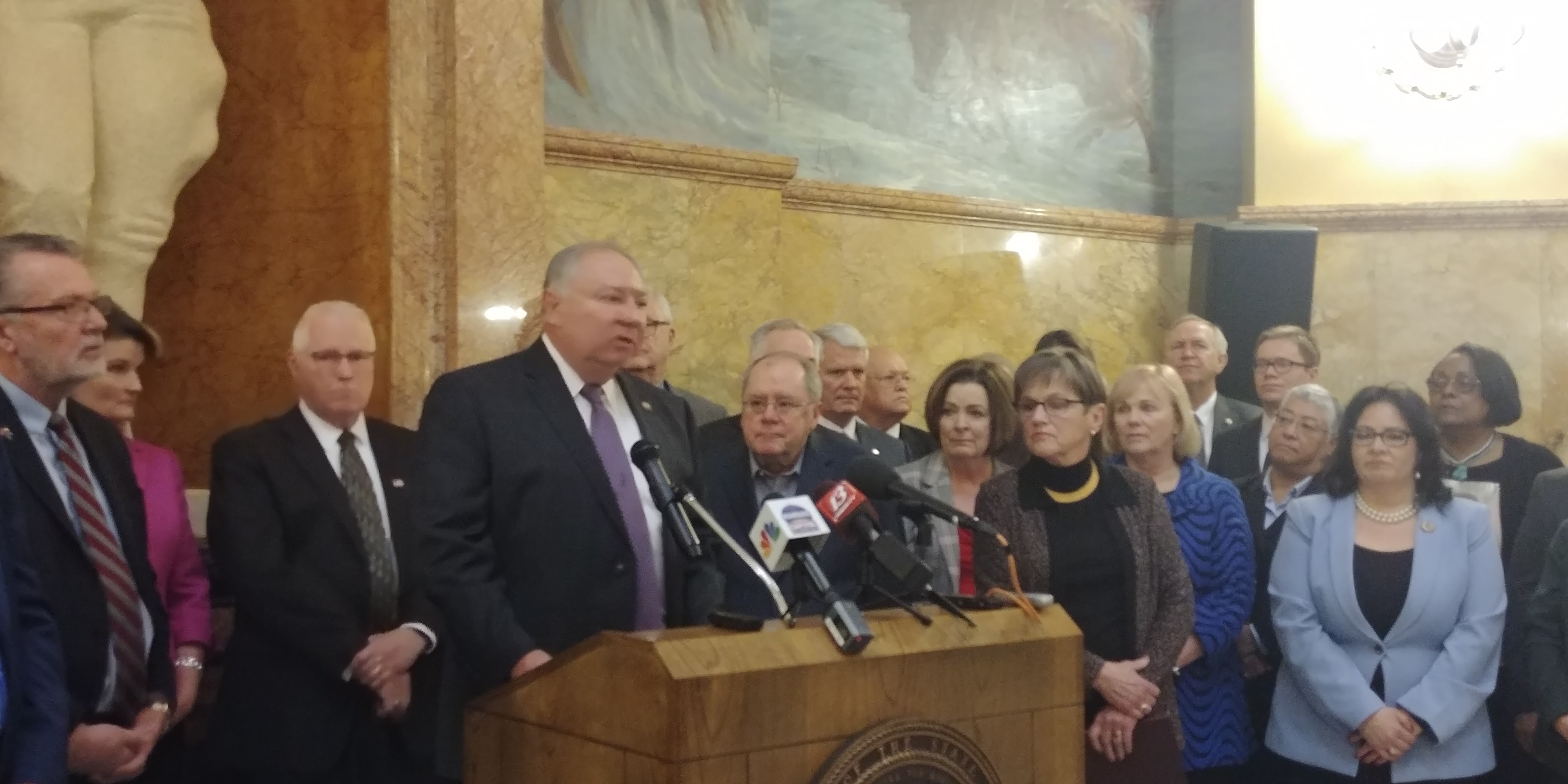Not only is Kansas Governor Laura Kelly accepting credit for an idea in a bill she vetoed, but the Kansas City Star is also enabling the cover-up.
On July 7, 2020, Kelly issued executive order 20-53 establishing an annual “report card” for children in the Kansas foster care system, which would among other things, require the Kansas Department of Children and Families to report the total number of students in foster care enrolled in a school district or accredited private school, as well as the percentage of kids in each school in foster care; the graduation rate of students in foster care at the end of each academic year; and the number and percentage of students in foster care who were promoted to the next grade level.
Kelly issued this executive order, just under one month after she vetoed a bill — HB2015 the “Promise Act” — which had the same provisions.
In fact, in a move of stunning hypocrisy, Kelly’s office lifted almost the exact language for her order from the bill she had so recently vetoed.
In fact, according to Kansas State Senator Molly Baumgardner, (R-Louisberg), Kelly vetoed a bill that had support — not only from her own caucus — but was supported by DCFS as well.
“I did meet with the Secretary of DCF (Laura Howard) at the very beginning of the session and said, ‘this bill is coming forward, I think it would be a good thing if DCF was a proponent or at least neutral rather than being an opponent … as they were the year before,'” Baumgardner said. “And DCF was a proponent for the bill.”
She said she found the fact that Kelly is now treating the foster care report card as her own idea, “absolutely appalling.”
“What’s insulting to me — not so much that it’s insulting to the legislative process, although there is that insult — but that it’s insulting to the foster kids,” Baumgardner said. “If she was simply going to make a report card an executive order, she’s been governor now for what? Nineteen months?
“At any point in time, she could have written that executive order. She could have written it as an executive order in December. I did go on the record that — at least on the Senate side — we would be introducing a bill.”
Not only did Kelly’s administration lift the text of her order directly from a bill she vetoed, but Secretary Howard also had the gall to pen an oped which ran in the Kansas City Star praising Kelly’s leadership in issuing the plagiarized order. The Star allowed Howard to give full credit to Kelly even though a Star news story from June acknowledged the report card was in legislation that Kelly vetoed.
“Gov. Laura Kelly’s decision to issue an executive order creating an annual Foster Care Academic Report Card was the right one for Kansas’ foster youth,” Howard wrote, adding later: “I’m proud to say Kansas will be among the first states in the nation to produce and publish such a report. The report also provides accountability and transparency to the public. I am especially pleased that the report will include data by race and ethnicity, allowing us to identify and specifically target any disparate outcomes.”
Howard goes on to extol the way the report card will improve educational outcomes while ignoring the fact that Kelly’s veto of the Promise Act scholarships did exactly the opposite.
The scholarships would have provided foster care students the same opportunity to attend concurrent classes at community colleges or local universities as students who are not in foster care, by paying the tuition for those classes.
Currently, while the state will pay tuition at any Regents University or community college for a student who “ages out” of the foster care system, those funds cannot be used while still in high school. So — rather than giving foster children access to the same “head start” other students have — Kelly’s veto actively prevented that.
Adding insult to injury, Kelly’s veto statement said she didn’t want to spend the money on Promise Act scholarships, which would have been subject to legislative approval of up to $10 million.
“Although well-intentioned, House Bill 2510 as a whole would annually deplete millions from state funds at a time when Kansas faces a $1.3 billion budget shortfall,” Kelly wrote. “I cannot in good conscience sign a bill establishing a new discretionary spending program that is unrelated to Kansas COVID-19 response efforts when such severe financial strain looms in the months ahead.”
Her excuse rings hollow in light of the fact that the budget she signed increased General Fund spending by about $193 million overall, from $7.831 billion to $8.024 billion.

Kelly also admitted earlier in her statement that the Promise Act would have been a help to foster students.
“House Bill 2510 includes valuable provisions such as … a foster care report card — that I would sign into law if they were presented in a standalone bill,” Kelly wrote. “The Kansas Promise Scholarship is also a laudable effort to make higher education more accessible to vulnerable Kansans.”
Baumgarder, whose committee even offered to delay the implementation of the act for a year to provide budgetary breathing room, said this was merely a self-serving opportunity for the governor to tout her “commitment” to foster children.
“All it was for her, was an opportunity to have a press conference,” Baumgardner said. “An opportunity to say it was her order and an opportunity for Laura Howard to make her comments about how dedicated the governor has been to foster kids.”



